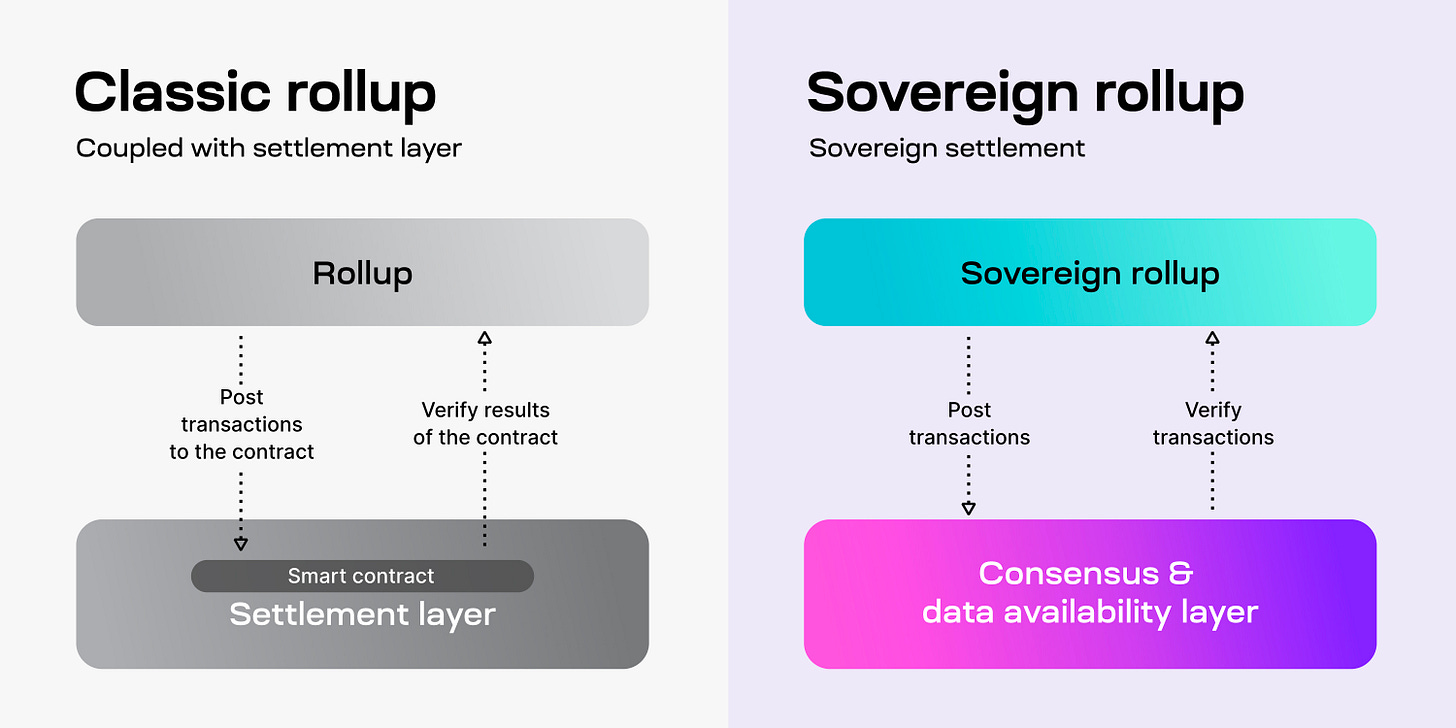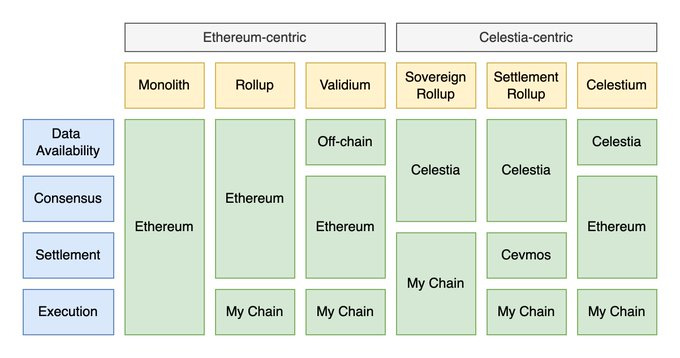Sovereign Rollup Chains: A New Era of Blockchain Scaling
Sovereign rollups are a groundbreaking technology poised to revolutionise how decentralised communities interact while resolving the long-standing issues of speed, cost, and scalability in blockchain networks. These rollups enable users to participate in decentralised communities with greater efficiency and security, transforming blockchain scaling and empowering the next generation of decentralised applications.
Overcoming Blockchain Scaling Issues
The inception of distributed ledgers brought about layer-1 blockchains, which have faced significant challenges in terms of speed, operation costs, and scalability. Zero-knowledge rollups (see the article we wrote below) emerged as a solution, easing the burden on layer-1 networks. Among the recent advancements in rollup technology, Sovereign rollups stand out as they supercharge speed and reduce costs, carving a new path forward in the blockchain scaling landscape.
The Advantages of Sovereign Rollups
In a recent episode of 0xResearch, Sovereign Labs CTO Preston Evans highlighted the substantial advantages of Sovereign rollups, including faster confirmations and cheaper user fees. These benefits are derived from a clever loophole in determining ZK rollup costs. The most expensive activity for most rollups is verifying proofs; however, the cost doesn't increase with proof size, enabling a thousand or a million transactions to be proved for the same layer-1 gas cost.
Under normal circumstances, this would result in several hours of latency, but Sovereign Labs has found a solution. Proofs can be sent directly to a peer-to-peer layer of light clients in real-time, avoiding latency issues.
Data Availability and Sampling
Data availability is a core challenge in blockchain environments. Evans suggests publishing the data online to tackle this issue, with layer-1 blockchains being the "gold standard." In addition, specialised chains designed for data availability, such as Celestia, implement data availability sampling.
Sovereign rollups can function like layer-1 blockchains with key differences that enhance efficiency. For example, Celestia's data sampling mechanism allows light nodes to sample small chunks of data for verification, enabling users to check the data availability chain's integrity easily.
Decentralised Sequencers: The Future of Blockchain Scaling
While centralised services offer speed and efficiency, Evans argues that decentralisation is the ultimate goal for designing sequencers, which provides censorship resistance. Furthermore, centralised sequencers are a temporary solution, with soft confirmations as one way to bridge the speed gap. In contrast, decentralised sequencers can give soft confirmations faster than layer-1 finalisation without risking censorship.
In summary...
The advent of Sovereign rollup chains opens new possibilities for decentralised communities and blockchain scaling. By combining the benefits of decentralised sequencers with enhanced data availability and security, Sovereign rollups enable a new era of efficient and secure participation in decentralised communities. However, as decentralised sequencers are still in their infancy, with many being only white papers at this stage, Evans emphasises the importance of not betting too hard on any particular model. Instead, contributing research and pushing people towards good decentralised models is the way forward in the rapidly evolving landscape of blockchain scaling.








